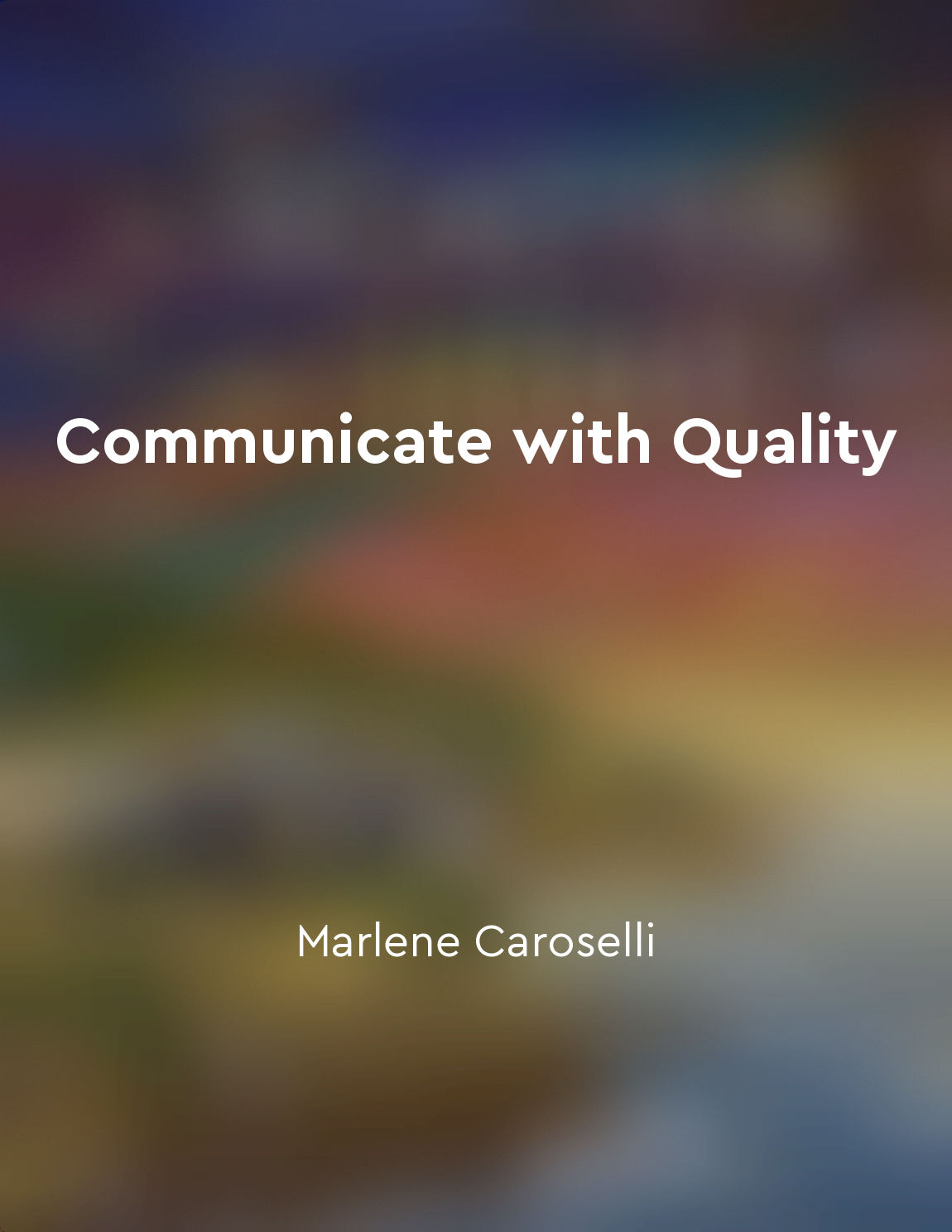Audio available in app
Nonverbal communication can greatly impact overall communication from "summary" of 21 Days of Effective Communication by Ian Tuhovsky
Nonverbal communication is a powerful tool that can significantly influence the effectiveness of our overall communication. The way we use our body language, facial expressions, gestures, and tone of voice can speak volumes about our thoughts and emotions, often more than words themselves. In fact, research shows that nonverbal cues can make up as much as 93% of our communication, leaving only 7% for verbal content. This means that what we don't say can sometimes be more important than what we do say. When we communicate nonverbally, we are sending out signals that can either enhance or detract from our intended message. For example, crossing our arms can signal defensiveness or closed-mindedness, while maintaining eye contact can convey trust and sincerity. Our posture, hand movements, and even the distance we maintain from others can all play a role in how our messages are received. Moreover, our tone of voice can greatly impact the way our words are interpreted. A harsh tone can make even the most innocent statement sound aggressive, while a soft and gentle tone can convey warmth and compassion. By paying attention to our tone and adjusting it accordingly, we can ensure that our message comes across as intended. It is important to note that nonverbal communication is often unconscious, meaning that we may not always be aware of the signals we are sending out. This is why it is crucial to develop self-awareness and monitor our nonverbal cues in order to improve our overall communication. By learning to read and interpret nonverbal signals in others as well, we can become more adept at understanding the true meaning behind their words.- Nonverbal communication is a vital aspect of effective communication that should not be overlooked. By being mindful of our body language, facial expressions, gestures, and tone of voice, we can enhance the clarity and impact of our messages. Developing our skills in nonverbal communication can greatly improve our ability to connect with others and build strong relationships based on trust and understanding.
Similar Posts
Use humor strategically to lighten the mood and capture attention
Humor is a powerful tool when it comes to communication. It has the ability to break down barriers, connect with others, and ma...
Analyzing posture can uncover underlying emotions
When we observe someone's posture, we can glean valuable insights into their emotional state. Posture is a powerful indicator o...
Engage in deep listening to uncover hidden meanings
To truly understand what someone is trying to communicate, it is essential to engage in deep listening. This means listening no...
Personal space boundaries vary between individuals
The concept that personal space boundaries vary between individuals is a crucial one to understand in the art of reading people...
Understanding cultural nuances is crucial
Understanding cultural nuances is crucial in communication and organizational training. Cultural nuances refer to the subtle di...
Use storytelling to engage and captivate your audience
Storytelling is an incredibly powerful tool when it comes to capturing the attention and interest of your audience. Humans have...
Physicians should listen without judgment
The essence of listening without judgment lies in the ability to truly hear what the patient is saying, without imposing our ow...

Always consider your audience when communicating
When you communicate, it is crucial to keep your audience in mind at all times. Your message should be tailored to the needs an...
Practice and persistence lead to persuasion mastery
To truly master the art of persuasion, one must be willing to put in the time and effort required to practice consistently. Thr...
Collaboration enhances communication outcomes
Collaboration plays a pivotal role in improving the effectiveness of communication outcomes. By working together towards a comm...

